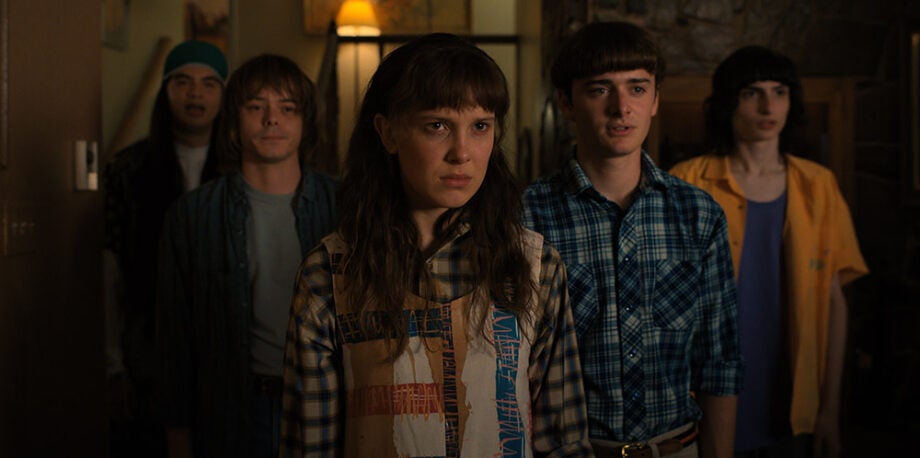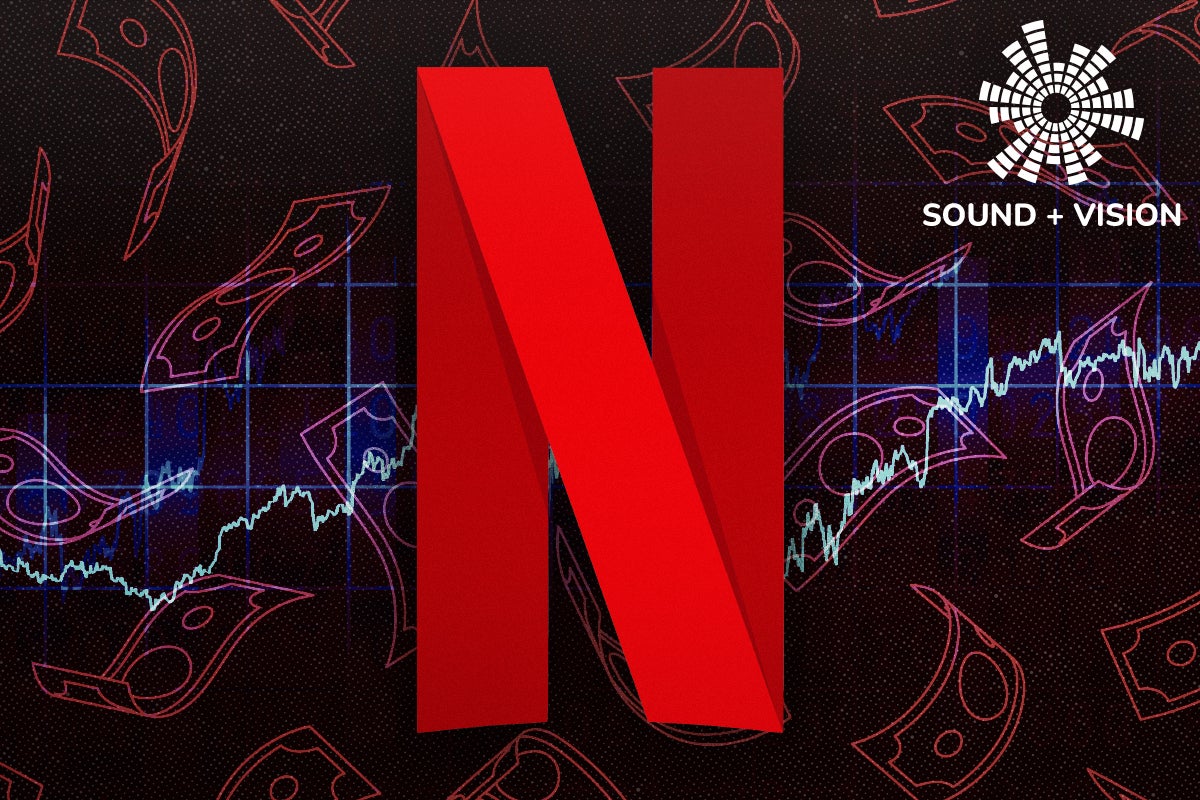Binge and bust? Why it’s time for Netflix shows to go weekly

OPINION: Netflix’s binge model once felt fresh and empowered the viewer. Now, amid intense competition, it gives everyone a perfect excuse to unsubscribe. Weekly episode drops would save Netflix from itself.
Netflix has done a fair bit of backtracking of late. Backtracking on its coolness with password sharing, and backtracking on whether it would countenance showing users ads. Part of that, of course, is the company scrambling to react to its backtracking on the stock market and its total subscriber count.
The company’s long-term future is, for the time being, under serious question. However, there’s one core tenet the company should renege on that would get the rig back on the road – Netflix should abandon the all-you-can-eat binge watching model and start releasing its TV shows on a week-to-week episodic basis.
I’ve argued for years that the binge model is a terrible way to present television from an artistic standpoint. However, regardless of how individual viewers feel about that, it now makes business sense for Netflix to swallow its pride and take a step back to move forward.
A decade ago, the binge model was revolutionary. It felt new and exciting. It was a break from the old guard, and democratised the TV viewing experience, putting power back into the hands of viewers tired of TV by appointment for new shows.
But now it feels played out, almost old hat. Rival services have had the advantage of observing both models and mostly sided with traditional weekly episode drops – be it Hulu, Apple TV Plus, Disney Plus, HBO, Amazon Prime, or Paramount Plus. It now makes more sense for Netflix to stop being the outlier.
Stranger Things weekender
Let’s take Stranger Things 4 in isolation. People have waited more than three years for that to arrive, and the first six episodes were consumed at an incredible rate, smashing Netflix records. If you signed up to watch, and did so over a weekend, Netflix potentially only gets one month out of you. If it dropped the shows once a week, it could get two. That’s the base economics, but it goes so much deeper than that.
What Netflix really misses out on is the weeks and weeks of buzz and media coverage that could surround its shows. The episode recaps, the written episode previews, the speculation about easter eggs, the interviews and obsessions with characters as the seasons progress week-to-week, and the genuine building of excitement that helps the very best, most memorable television shows become cultural phenomena over time.
With Netflix shows, there’s a week of buzz surrounding the hype-generating new shows like Squid Game or Bridgerton and then it fades until the next one comes around.

The idea is that people get hooked beyond Stranger Things 4 (or whatever) and stick around to watch everything else in the company’s line-up. This may have worked well in the past, when Netflix had the streaming playing field to itself, both in terms of original content and everything it had stashed in the archives.
Now those archives have dwindled as content owners have taken back their originals for own branded streaming services. That has also meant there’s too much good stuff out there for people to hang on Netflix’s bloated originals library that lacks the depth of top tier, critically acclaimed series.
Each of the rival services have their signature, trend-worthy shows, strung out over weeks and generally dropped one after the other. That makes forking out for an annual subscription feel worth it because there’s always a hit to watch. With Netflix it feels easy to sign up for a month, drop it for six. Or, worse still, just ask a family member: “Hey can I borrow your Netflix password to watch Stranger Things?”
Take right now for instance. There’s Ms. Marvel and Obi-Wan Kenobi on Disney Plus, there’s The Boys Season 3 on Amazon Prime, there’s For All Mankind Season 3 on Apple TV Plus, Barry and The Staircase on HBO, and Halo on Paramount Plus.

The Handmaid’s Tale and Only Murders In The Building are about to return to Hulu, Westworld Season 4 lands on HBO this month, and The House of The Dragon in August. Amazon is just a couple of months from dropping Lord of The Rings: The Rings of Power, and Ted Lasso will be back on Apple TV Plus this summer. Disney Plus will soon have She-Hulk from the MCU and the standalone Star Wars series Andor, to command the pop culture landscape as those franchises always do.
Netflix doesn’t have that. It has a weekend of people blitzing through Stranger Things, or Bridgerton (so they don’t get spoiled by the internet) or whatever flash-in-the-pan hype show currently in rotation.
Inferior viewing method
I may sound like a broken record here, but these series are written with the knowledge viewers are watching in one or two dollops.
The episodes aren’t tightly written, they’re sprawling, and they don’t follow good narrative structure. Episodes blend and impactful moments don’t hit because there’s no time for them to sink in. What’s the point of a cliff-hanger if characters aren’t dangling for longer than it takes to hit ‘Next Episode’ before you find out whether they’ve scrambled back from the precipice?
Our brains aren’t designed to consume about six-eight hours of the same show and digest the finer points and, as a result, Netflix shows feel unremarkable and forgettable.
I often ask people “in what other context does the word binge have a positive connotation?” Yet, personal preference goes a long way and there are millions who prefer the Netflix model of instant over delayed gratification. Perhaps even a majority?
However, now I feel like there’s enough evidence to state that, beyond this debate, it makes business sense for Netflix – with a trimmed content output and a greater focus on quality over quantity – to admit it’s time to go back to the future. Give us something to look forward to every Friday night and keep us as subscribers.




